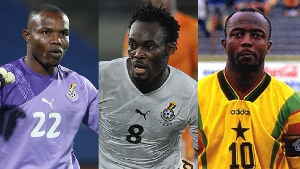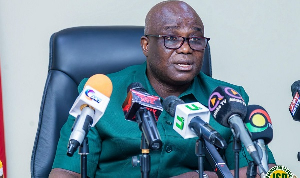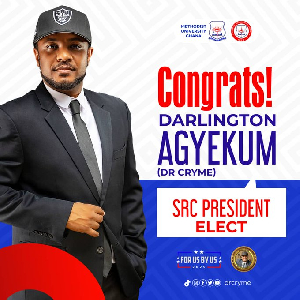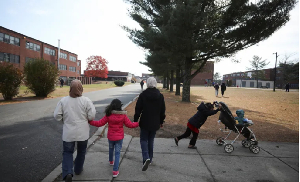The highly criminal and hidden nature of organized crime presents traffickers numerous platform for recruiting and selling vulnerable Ghanaian children and adults. Traffickers comprise agents or middlemen typically, Ghanaians and their foreign counterparts.
These foreign counterparts together with these unscrupulous Ghanaians mastermind in the trafficking of vulnerable and unsuspecting Ghanaians.
Traffickers make use of advance technology available to hide their criminal activities on the internet. Due to the complexity of these technologies they are mostly prevented from being caught.
The advances in technology is providing these criminal gangs with more places to hide and operate their illegal trafficking business.
Research by the Eban Centre for human Trafficking Studies indicate that the recruitment, transportation, transfer, harbouring or receipt of victims of trafficking is being facilitated through the Dark Web.
The Dark Web, a fast-evolving frontier of Human Trafficking activities in Ghana and neighbouring West African Countries, nearly guarantees anonymity to its users through the use of multi-layered encryption technology.
At each layer the user’s internet protocol address, the identifying address of a computer, is encrypted and passed to another volunteer server to create the next layer.
As the destination website only receives the last internet protocol address in the route process, the website never actually knows who they are communicating with. The Dark Web helps Traffickers to engage in various organised crimes, such as prostitution and drug trafficking.
One can readily access the services of escorts and prostitution online with just a few clicks using services like Backpage, Craigslist, Facebook and the many chat rooms dedicated to these services.
Online advertising is not the only method traffickers use to sell their wares, but it is a key component with many traffickers ensuring that online listing happens in as many places as possible.
Some even force their victims to spend time online advertising themselves with both real and different photo identities. False photos are often used to hide under age exploitation.
Significant to their operations, traffickers have mastered the art of gaining access to private information of unsuspecting individuals, develop some degree of emotional bond of which they exploit them for their own gain.
According to a study by Thorn, an anti- human trafficking organisation, on the role of technology in trafficking, the organisation indicated that 63% of the participants reported being sold online.
The situation may be more severe in Ghana due to the porosity of the cyber space, rising number of children assessing the internet, impersonation, forged documentation, especially passports, ineffective border control and lack of enforcement of Children Protection laws and Anti-Human Trafficking Laws.
The United Nations defines “trafficking in Persons as the recruitment, transportation, transfer, harbouring or receipt of persons, by means of the threat or use of force or other forms of coercion, of abduction, of fraud, of deception, of the abuse of power or of a position of vulnerability or of the giving or receiving of payments or benefits to achieve the consent of a person having control over another person, for the purpose of exploitation.
Exploitation shall include, at a minimum, the exploitation of the prostitution of others or other forms of sexual exploitation, forced labour or services, slavery or practices similar to slavery, servitude or the removal of organ.
Globally, human trafficking is a serious crime and a grave violation of human rights. In Ghana, the Human Trafficking Act, Act 694 as amended prescribes penalties of a minimum of five years of imprisonment.
The 2015 regulations for this Act provide specific guidance on sentencing depending on the circumstances; in general, the term is not less than five years and not more than 25 years, but if a parent, guardian or other person with parental responsibilities facilitates or engages in trafficking, they are liable to a fine or a term of imprisonment of not less than five years and not more than 10 years, or both.
Also, the 1998 Children’s Act (Act 560), the 1960 Criminal Act (Act 29) and the 1960 Criminal Procedure Act (Act 30) exist to help combat human trafficking.
Simply put, human trafficking is when someone stands to gain from someone else’s exploitation. The actual act of exploitation need not have occurred to be considered trafficking; simply, motivation or intent to exploit for gain must be present.
It is to be noted that the fight against human trafficking in the virtual world is a new frontier that is constantly evolving. Human trafficking cannot be fought solely on a legal. Prevention efforts need to focus on the intersection of inter-government co-operation, social engineering and technology.
Eban Centre for Human Trafficking Studies recommends that;
The Ministry of Gender, Children and Social Protection and the Ministry of Communication and Technology should develop and implement child online protection programmes that would help protect children when they go online.
Examples such as age restriction; parental guidance programmes and tools to streamline the publication of fraudulent employment opportunities abroad.
Secondly, surveys similar to that commissioned by Thorn on the use of technology to recruit, groom and sell domestic minor sex trafficking victims should become part of each nation’s anti-trafficking strategy in order to understand how traffickers are using the internet to recruit and sell victims.
This will provide qualitative data on keywords that traffickers are using, that can then be used to fine to filter large amounts of publicly available information and communications.
Currently spotlight is providing tools for law enforcement agencies in the America. This technology should be created on a national level in each country by Technology companies in Ghana.
Moreover, National Helpline advertisements should be placed on search engine results for pornography. As traffickers utilize victims to place adverts online, this method will alert victims to how they can access help. Adverts should be worded as they relate to the victim.
That is, they should ask “are you being forced to have sex with people so someone else gets money?” as opposed to “are you being trafficked?” Unfortunately, those that are being trafficked often do not realize the process. The terminology (trafficked) does not resonate with them.
Finally, inter-government collaboration is required for international, national and domestic law and accountability of internet usage. Anti-trafficking groups need to be included in the discussion for internet governance as they can contribute to the profiling of traffickers.
Opinions of Thursday, 20 September 2018
Columnist: Kobina Ansah















